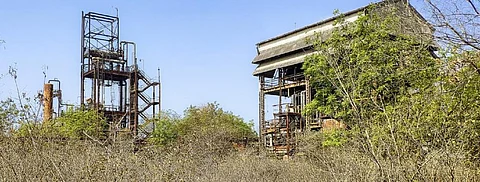

Bhopal Gas Disaster: The novel coronavirus disease (COVID-19) cases crossed the 16,000-mark in India on April 19, 2020 — setting off panic and exposing fault lines in our overburdened healthcare system. Some states have designated certain establishments as COVID-19-only hospitals to deal with increasing cases, dealing a blow to non-COVID-19 patients.
A particularly disadvantaged group among them is the victims of the 1984 Bhopal gas disaster — most of whom have immune-compromised systems and pre-existing conditions such as cardiovascular disorders, kidney ailments and Thalassemia.
Madhya Pradesh recorded more than 1,400 cases and 70 deaths as on April 20, 2020. While Indore recorded 892 COVID-19 cases, Bhopal reported 186. All six reported COVID-19 deaths in Bhopal were victims of the gas tragedy.
Most of Bhopal’s infected cases comprise health practitioners and senior officers in the health department. This has derailed containment, tracing, testing and treatment.
“On April 17, a Bhopal gas tragedy victim died at the city’s Hamidia Hospital. He had tested positive for the virus and his entire family has been isolated. However, the state’s official bulletin had no record of this till late April 19,” said Rachna Dhingra, a social activist.
Some survivors also succumbed to seemingly treatable maladies.
The Bhopal Memorial Hospital and Research Centre (BMHRC) is the only multi-specialty hospital for survivors. Though other smaller centres exist, they do not have the same level of expertise, and given the current situation, have further restricted operations.
On March 22, the BMHRC was abruptly converted to a COVID-19 hospital, albeit a non-functioning one.
For the next 22 days, BMHRC refused to treat any gas victim and did not treat any COVID-19 patients either as the protocol was not in place. This resulted not only in loss of precious days and resources, but also caused three deaths.
Kullu Ram, a pulmonary patient, was referred to another hospital on March 24, where he died four days later. On April 2, a 70-year-old survivor died at her home. Harvansh Kaur, who was hurriedly discharged from the cardiac unit of BMHRC on March 24, died at her residence on March 30.
It was only after repeated petitions to the health department and a lawsuit with the Madhya Pradesh High Court, that the hospital was reinstated as facility for gas tragedy survivors.
However, the protocol to deal with suspected COVID-19 patients is still not in place. This is especially concerning as those who were exposed to the deadly MIC gas leak are highly vulnerable — more than half of the survivors have cardiovascular problems, 60 per cent have advanced pulmonary conditions and about 15 per cent are diabetic.
The apathy of the elected representatives is even more appalling for there has been no official statement to their benefit.
The situation in Madhya Pradesh is precarious — it does not have a cabinet or a health minister. Gas relief operations and health come under the purview of the principal secretary, health department, who is now in quarantine.
Senior bureaucrats, who are handling health matters, have completely ignored the survivors.
The BMHRC was built as a part of negotiated settlement between the Union of India and Union Carbide Corporation to provide free medical care for the victims. It is operated by Indian Council of Medical Research.
The tragedy claimed over 4,000 lives and survivors continue to report health issues such as pulmonary fibrosis, impaired sight and cancer. Most survivors were given a paltry compensation and Union Carbide largely escaped unscathed.
The condition, though most acute in Bhopal, is similar to what is being reported across India. Several hospitals across the country are turning away regular patients. Some have shut outpatient departments.
Several non-COVID-19 but critical patients have found themselves at the receiving end of lack of accessibility to medical treatment. Blood donation efforts have been severely affected as donors are not given emergency passes to reach hospitals. Since most donors are seemingly healthy looking and do not have prescriptions, they are turned away by policemen at check points.
The enforcement authorities have no clear guidelines on what documents are required for patients to be able to travel to local hospitals.